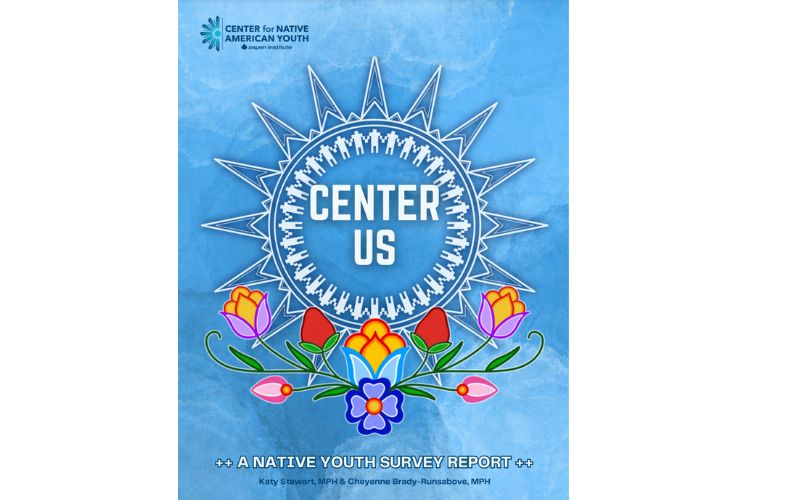
- Details
- By Kaili Berg
Center Us: A Native Youth Survey Report used data collected throughout 2023. The initiative surveyed approximately 1,000 Native youth and hosted eight focus groups with 65 participants from diverse regions, amplifying voices that are often underrepresented in broader societal conversations.
“During a time when we honor Indigenous history and celebrate the diverse cultural identities and continued resilience of Native peoples, it’s important to remember that Native youth perspectives are rarely prioritized in data collection and analysis,” said Katy Stewart, lead report writer and programs manager. “With this report, we attempt to do both.”
Additionally, young people in rural areas report significant struggles in accessing educational funding, often seeing higher education as an unattainable goal. Healthcare is another critical focus, with youth expressing a strong preference for tribal healthcare services over non-tribal options.
“These findings emphasize the ongoing need to support Native youth through cultural engagement and improved access to resources in the community, both of which are essential for fostering positive life outcomes,” said Cheyenne Brady-Runsabove (Sac & Fox Nation), associate director of youth programs and co-author of the report.
Read the full report here.
More Stories Like This
Native News Weekly (August 25, 2024): D.C. BriefsNavajo Nation Mourns the Passing of Former Vice President Rex Lee Jim
Deb Haaland Earns Endorsement From Communications Workers of America Local 7076
University Soccer Standout Leads by Example
Two Native Americans Named to Democratic Congressional Campaign Committee's“Red to Blue” Program
Help us defend tribal sovereignty.
At Native News Online, our mission is rooted in telling the stories that strengthen sovereignty and uplift Indigenous voices — not just at year’s end, but every single day.
Because of your generosity last year, we were able to keep our reporters on the ground in tribal communities, at national gatherings and in the halls of Congress — covering the issues that matter most to Indian Country: sovereignty, culture, education, health and economic opportunity.
That support sustained us through a tough year in 2025. Now, as we look to the year ahead, we need your help right now to ensure warrior journalism remains strong — reporting that defends tribal sovereignty, amplifies Native truth, and holds power accountable.
 The stakes couldn't be higher. Your support keeps Native voices heard, Native stories told and Native sovereignty defended.
The stakes couldn't be higher. Your support keeps Native voices heard, Native stories told and Native sovereignty defended.
Stand with Warrior Journalism today.
Levi Rickert (Potawatomi), Editor & Publisher


